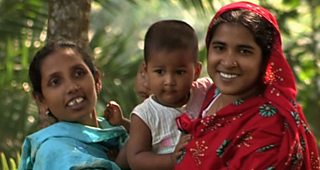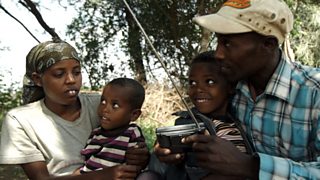Can we improve women's health without improving their status?
Laura Smethurst
Research Manager, ΒιΆΉΤΌΕΔ Media Action
Tagged with:

“Men know more about everything. They also understand [things] better. We women are very emotional and thus do not take practical decisions. They are also the ones who earn money by working tirelessly and understand the value of money.”
These words were spoken by a woman we met while conducting research to inform our programmes in Odisha, India.
We were there to explore the reasons why many young women are not able to carry out the recommended health practices during pregnancy, such as attending enough antenatal appointments, or delivering their baby at a health facility.
As part of ΒιΆΉΤΌΕΔ Media Action's Global Grant programme, we were also able to conduct similar research across Bangladesh, Ethiopia, South Sudan and, as well as Odisha and Madhya Pradesh in India. (Read our full findings .)
Alongside poor access to information and health services – young women's lack of status in society consistently emerged as a barrier to improving their health.
We found that young women’s health is not given priority when men are allocating money, and many young women do not have the confidence to negotiate for better care.
And where families are supportive of pregnant women receiving care, it’s often for benefit of the unborn child rather than for the woman.
Country insights
In Bangladesh and India many young rural women have little power and their mothers-in-law and husbands are the household decision-makers. Many mothers-in-law do not sanction a pregnant woman receiving special care.

Pregnant women fleeing fighting in South Sudan.
βThe culture says let the woman produce. If you produce you will be a lucky woman at home, if you donβt produce the man will divorce.β
In Ethiopia our research found that young women appear to have relatively more autonomy and, generally, more supportive husbands, however it also found that some husbands refuse to help their pregnant wives with what they see as βwomenβs workβ.

Impact on programmes
These findings suggest that women’s status and gender stereotypes shape what they do in relation to their health, across the four countries. But what does this mean for our programme makers?
We’ve shared these findings with our programme makers who are already trying to weave storylines and features around women’s status into our programmes to try to bring positive change.
For example, in , our maternal health radio programme has encouraged men to start calling their wives by their first names, which is a sign of greater respect.
In , our health TV drama, which is trying to delay the age of first marriage, portrays how taking a girl out of education to marry against her own will can act as the catalyst for the decline of her health and her family’s fortune.
It’ll be interesting to see to what extent these programmes will have an impact on attitudes towards women’s care – but from our initial findings, it seems clear that improving women’s health and status go hand in hand.
Related links
Follow ΒιΆΉΤΌΕΔ Media Action on and
